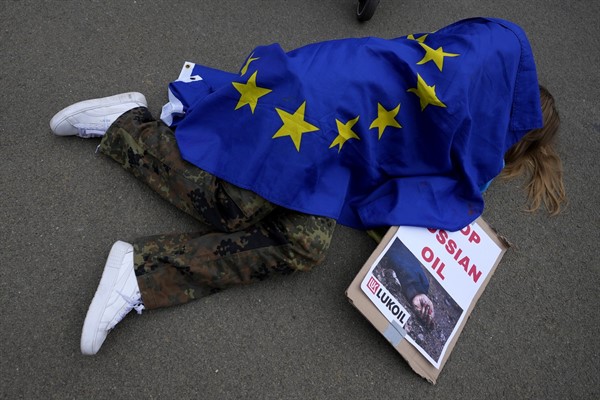Editor’s note: This will be Candace Rondeaux’s final weekly column for World Politics Review. We’d like to take this opportunity to thank Candace for her sharp analysis, compelling prose and passionate commitment to putting people at the heart of international security commentary. It’s been a pleasure offering her work to WPR’s readers for the past three years. We wish her the best of luck in her multiple endeavors moving forward.
Russia’s move this week to cut off natural gas deliveries to Poland and Bulgaria, combined with growing fears that Moldova could be drawn into President Vladimir Putin’s militaristic machinations, invites a thought experiment: What would European security and the world order look like if Russia’s war were to drag on for another eight years?
Conventional wisdom suggests that it is too soon to predict the trajectory of the war in Ukraine. After all, as economist John Kenneth Galbraith once said, the march of events often outpaces ideas, and in the case of Russia’s military aggression, the Kremlin’s strategic shift seems to have moved with remarkable alacrity. Over the past two weeks, Moscow has turned much of its firepower toward the disputed eastern region of Donbas and pounded the Black Sea coastal city of Mariupol into near capitulation. It has also ramped up its long-range missile attacks on the Ukrainian capital of Kyiv as well as Lviv in the until now relatively untouched west. The Pentagon has described these attacks as “shaping operations” that suggest more aggressive Russian operations and more provocations and escalations lie ahead.

